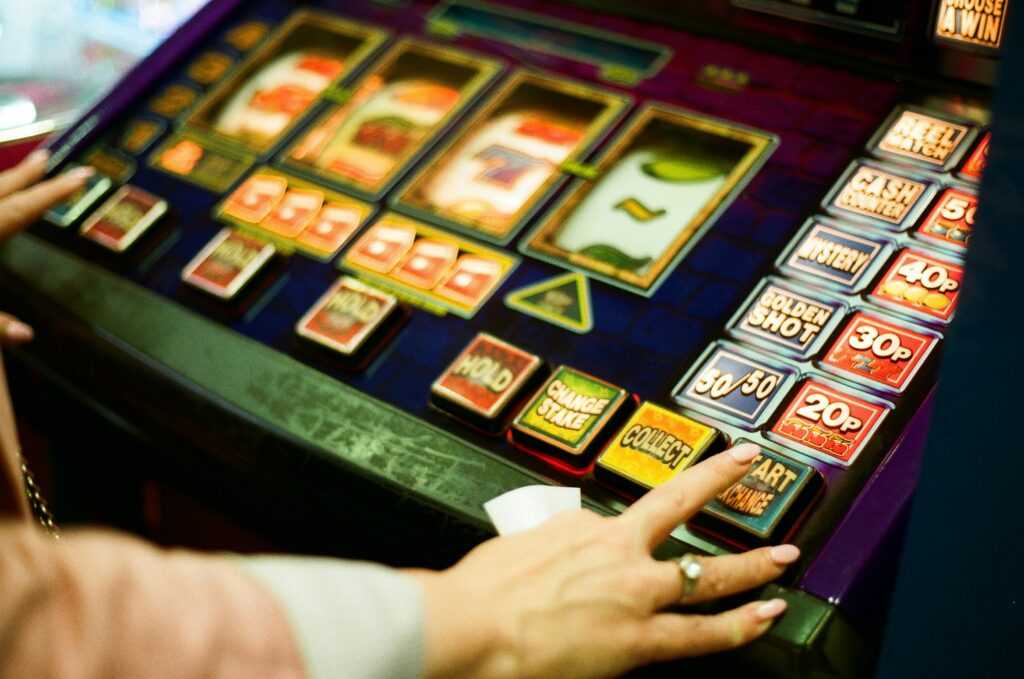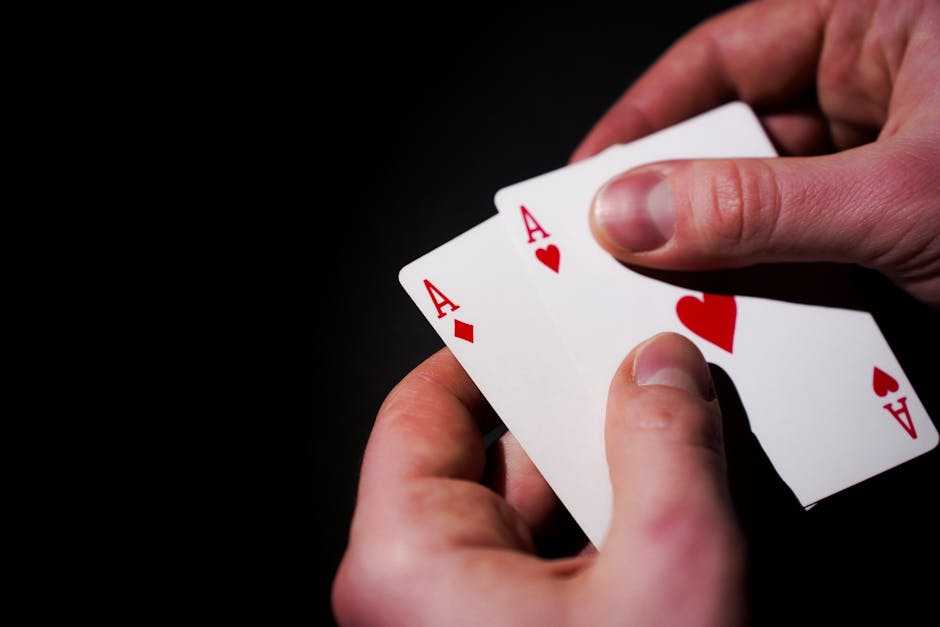Are you looking to steer clear of impulsive gambling choices? In the world of betting, staying in control is key. I’ve delved into effective strategies to help you navigate the tempting allure of impulsive decisions when it comes to gambling. Let’s explore practical tips to keep you on track and in charge of your actions.
When it comes to the thrill of gambling, it’s easy to get caught up in the moment and make decisions on a whim. However, with a few mindful practices, you can safeguard yourself against impulsive choices that may lead to regret. Join me as I share insights on how to maintain a balanced approach and avoid the pitfalls of impulsive gambling decisions.
Understanding Impulsive Gambling
Gambling is not just about the game itself. It’s often influenced by psychological factors that lead to impulsive behavior. Understanding the mindset behind impulsive gambling is crucial in avoiding its traps. Here’s how I delve into the world of impulsive gambling and the thought processes that drive this behavior:
Urgency Over Reason:
Impulsive gambling thrives on the need for instant gratification. The urgency to experience a quick win overrides logical thinking, leading to hasty decisions without weighing the consequences.
Emotional Triggers:
Emotional triggers play a significant role in impulsive gambling. When individuals are driven by emotions like excitement, stress, or even boredom, they are more likely to make impulsive bets without considering the risks involved.
Risk Misjudgment:
Impulsive gamblers often underestimate the risks involved in their decisions. They focus on the thrill of winning rather than the probability of losing, leading to poor judgment and irrational behavior.
Escapism and Avoidance:
Some individuals turn to gambling as a form of escapism or to avoid dealing with underlying issues. This behavior can fuel impulsive decision-making as they seek temporary relief or distraction from their problems.
Illusion of Control:
Impulsive gamblers may have an illusion of control over the outcomes of their bets. Believing they can influence the results, they continue to place impulsive bets, unaware of the negative impact of their actions.
Understanding these underlying factors is essential in recognizing and combatting impulsive gambling tendencies. By addressing these triggers and behaviors, individuals can take proactive steps to avoid impulsive decisions and maintain control over their gambling habits.
Risks of Impulsive Gambling
Exploring the risks associated with impulsive gambling is essential in raising awareness about the potential consequences of hasty decisions in the realm of betting. Understanding these risks can empower individuals to make informed choices and avoid the pitfalls of impulsive behavior. Below are the key risks linked to impulsive gambling:
- Financial Instability: Impulsive gambling often leads to significant financial losses, impacting one’s financial stability and future financial goals.
- Emotional Distress: Engaging in impulsive gambling can result in emotional distress, including feelings of guilt, shame, and anxiety due to the negative outcomes of reckless decisions.
- Relationship Strain: Impulsive gambling can strain relationships with family and friends due to financial hardship, deceit, and broken trust resulting from irresponsible behavior.
- Legal Consequences: Impulsive gambling may lead to legal issues, such as debt collection, bankruptcy, or involvement in illegal activities to finance gambling habits.
- Mental Health Concerns: Persistent impulsive gambling can contribute to the development or exacerbation of mental health issues like depression, anxiety, and substance abuse disorders.
Recognizing these risks is crucial in taking proactive steps to prevent impulsive gambling behaviors and protect oneself from the adverse effects associated with compulsive gambling tendencies. By being aware of these risks, individuals can make informed decisions and seek help if needed to overcome impulsive gambling habits.
Strategies to Avoid Impulsive Gambling Decisions
In tackling impulsive gambling behavior, setting limits and boundaries is a fundamental strategy. It involves establishing strict guidelines for oneself to prevent reckless decisions. For instance, I consistently set a budget before engaging in any form of gambling, ensuring I only wager what I can afford to lose.
Setting Limits and Boundaries
One effective way to control impulsive gambling is by limiting the amount of time and money spent on it. I find it helpful to set specific timeframes for gambling activities to avoid getting caught up in the moment. By doing this, I can regulate my behavior and curb any impulsive urges that may arise during a gaming session.
Seeking Professional Help
When grappling with impulsive gambling tendencies, seeking professional help is crucial. Whether through therapy, counseling, or support groups, I acknowledge that professional assistance can provide valuable insights and strategies to overcome compulsive gambling behaviors. I have found that speaking with a trained therapist has helped me better understand the root causes of my impulsive gambling and develop healthier coping mechanisms.
Benefits of Avoiding Impulsive Gambling
Reflecting on the advantages of avoiding impulsive gambling, I’d like to pinpoint the positive outcomes that stem from controlling such behaviors. By curbing impulsive gambling tendencies, individuals can experience a myriad of benefits that have a significant impact on various aspects of their lives. Let’s delve into the key advantages below:
- Enhanced Financial Stability: By steering clear of impulsive gambling decisions, individuals safeguard their financial well-being. They avoid the pitfalls of overspending, accumulating debts, and experiencing financial hardship.
- Improved Emotional Well-being: Avoiding impulsive gambling contributes to better emotional health. It helps individuals minimize stress, anxiety, and feelings of guilt or regret often associated with impulsive behavior.
- Stronger Relationships: Making conscious decisions and avoiding impulsive gambling can strengthen relationships with family and friends. It fosters trust, reliability, and a sense of responsibility in interpersonal interactions.
- Legal Protection: Steering clear of impulsive gambling helps individuals stay within the bounds of the law. By avoiding illegal activities associated with compulsive gambling, individuals safeguard themselves from legal consequences.
- Better Mental Health: Controlling impulsive gambling can have a positive impact on mental well-being. It reduces the risk of developing mental health issues related to addictive behaviors, such as depression or anxiety.
These benefits underscore the importance of taking proactive steps to avoid impulsive gambling decisions. By prioritizing self-control and adopting healthy gambling habits, individuals can enjoy a more balanced and fulfilling lifestyle.



 Bianca Laura – A forward-thinking writer with a passion for emerging trends, Bianca focuses on the intersection of technology and betting. Her expertise lies in identifying new opportunities in the world of sports and casino betting, including the rise of mobile platforms, e-sports betting, and artificial intelligence in gambling. Bianca’s articles not only highlight current trends but also offer predictions about where the industry is headed, making her insights invaluable for bettors looking to stay ahead in a fast-paced market.
Bianca Laura – A forward-thinking writer with a passion for emerging trends, Bianca focuses on the intersection of technology and betting. Her expertise lies in identifying new opportunities in the world of sports and casino betting, including the rise of mobile platforms, e-sports betting, and artificial intelligence in gambling. Bianca’s articles not only highlight current trends but also offer predictions about where the industry is headed, making her insights invaluable for bettors looking to stay ahead in a fast-paced market.

